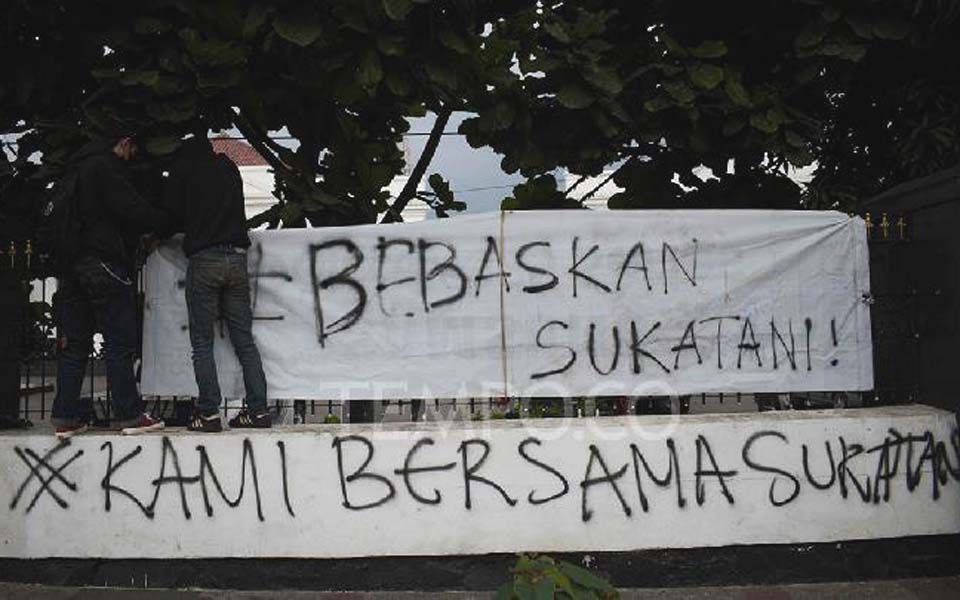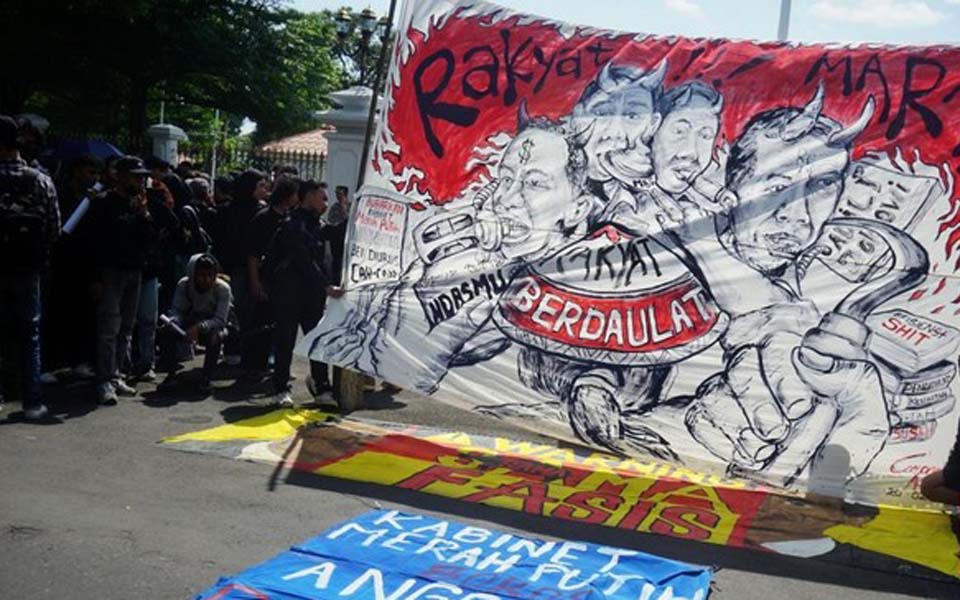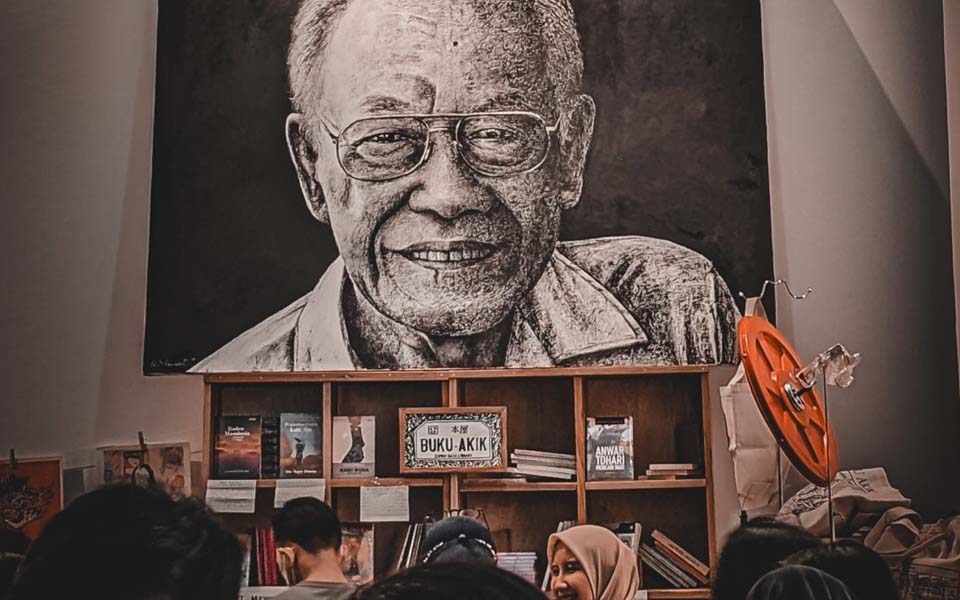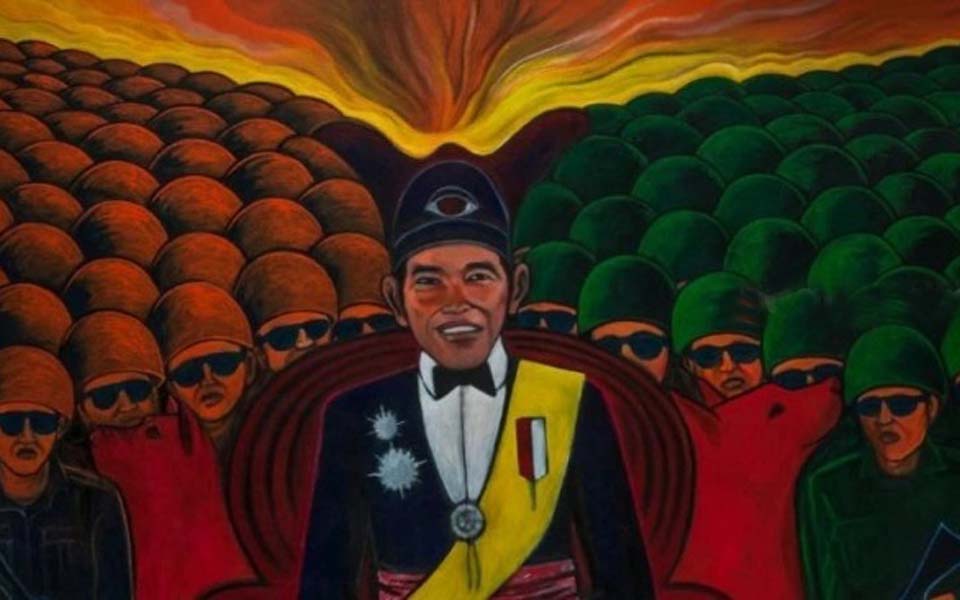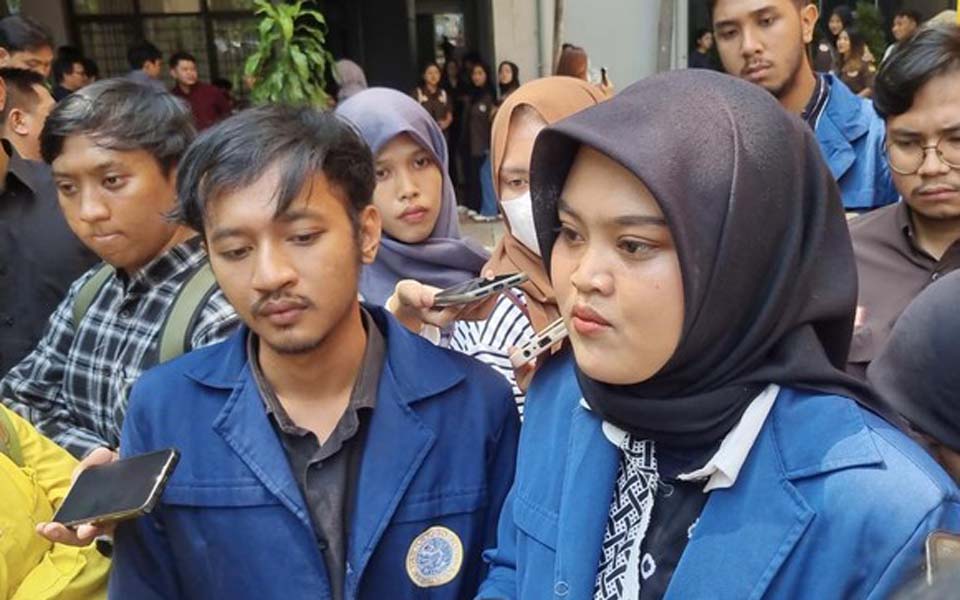orio Mantalean, Jakarta – Year by year, space for digital freedom in Indonesia is narrowing. Entering 2022, the Southeast Asia Freedom of Expression Network (SAFEnet) noted that digital freedom in Indonesia has become worse compared with 2021 when it was already categorised as "Alert Level 2"..
Now, digital freedom in Indonesia is halfway between "Alert Level" and heading towards "Critical", meaning Indonesia will continue to move towards digital authoritarianism unless significant improvements are made.
SAFEnet Chairperson Damar Juniarto explained that instead of being used as a tool to advance citizen's democratic rights, digital space in Indonesia is instead being manipulated by those in power for the exact opposite.
"What has occurred is in fact a erosion of citizen's rights which is heading in the direction of what we have been afraid of, namely digital authoritarianism, technology is being used for repression, lies, [mis]information", said Juniarto during a virtual discussion by the International Forum on Indonesia Development (INFID) on Monday July 11.
Narrowing the space for digital freedom in Indonesia cannot be separated from the actions of the government.
Taking an example in 2019, SAFEnet noted that on at least three occasions the government throttled the internet, namely in Jakarta on May 22-24, Papua and West Papua provinces on August 21, along with Wamena and Jayapura on September 23-29.
In 2020, the prosecution of citizens for expressing themselves in digital space increased sharply from 24 to 84 cases.
In addition to this, the catchall articles in the Information and Electronic Transaction (ITE) Law and the Criminal Code (KUHP) – which is currently being revised by parliament – also contributed to narrowing the space for digital freedom.
"Over the last period we can see that the situation is becoming worse at the same time as internet penetration is growing. Out of the 77 percent of the pubic which can now connect to the internet, they are in fact now facing a situation which is more critical", explained Juniarto.
A similar view was expressed by Institute for Public Research and Advocacy (ELSAM) Executive Director Wahyudi Djafar.
Speaking at the same discussion, he touched on the issue of how the internet was imagined. Initially the internet was imagined as a new pillar of democracy, but it has in now been transformed and has in fact turned on its users.
The internet, which was initially seen as a tool to advance the civil society movement, has instead been used by the authorities to clip the movement's wings through the police and security institutions.
"The state and the government, through the police, security instructions and the authorities, have made a serious effort to use power to demobilise [the movement], by creating regulations, then using technology to repress democracy", said Djafar.
"In Indonesia we are acquainted with the buzzer phenomena where they are part of the state apparatus used to demobilise social movements by manipulating social media or the internet", he added.
The Indonesian government can clearly be seen to be making efforts to reclaim or take back the internet which was initially imagined as a free entity that could be used by anyone.
This process of reclaiming, Djafar believes, was done through various regulations and legislation whose goal was the same, namely to restrict access and manipulate the internet.
"This needs to be responded to correctly, how to push for the creation of laws and legislation by emphasising the protection of human rights", said Djafar.
"Not the reverse, where the laws and legislation which have been created instead emphasise the aspects of restricting human rights and providing legitimacy to the state to control the internet which will in fact have a huge impact on narrowing democratic space", he said.
[Translated by James Balowski. The original title of the article was "2022, Indonesia Semakin Dekat ke Otoritarianisme Digital".]







